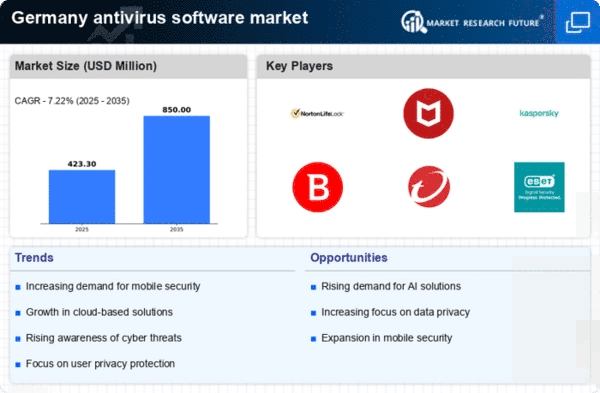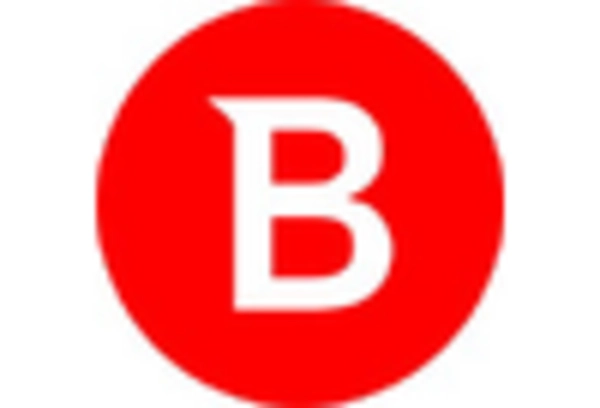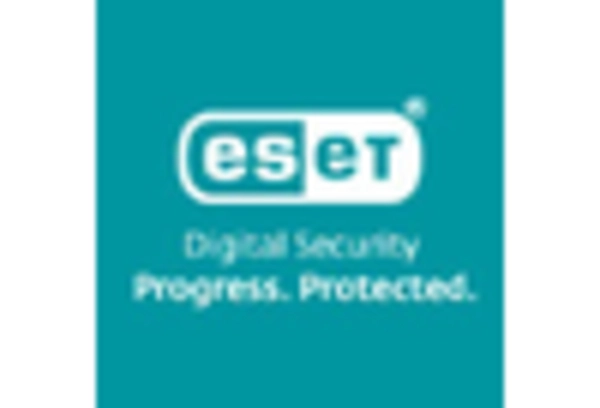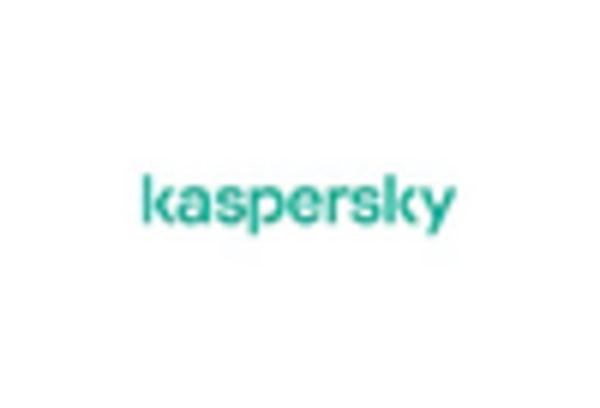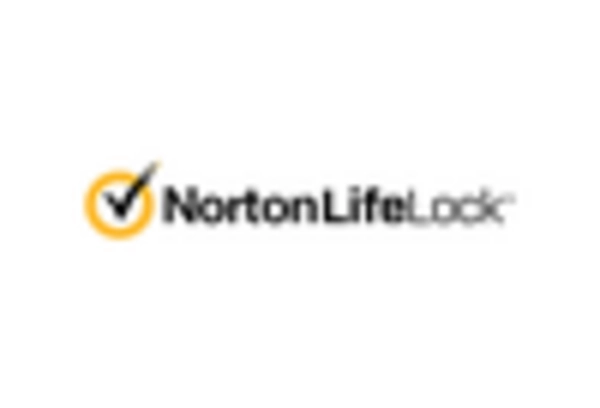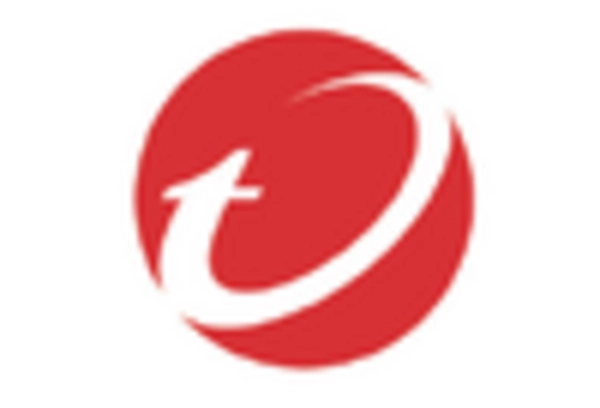Increasing Cyber Threats
The antivirus software market in Germany is experiencing a notable surge due to the increasing frequency and sophistication of cyber threats. Reports indicate that cybercrime costs the German economy approximately €100 billion annually, prompting businesses and individuals to seek robust security solutions. As ransomware attacks and phishing schemes become more prevalent, the demand for effective antivirus software intensifies. This trend is further supported by the fact that 60% of German companies have reported experiencing cyber incidents in the past year. Consequently, the antivirus software market is likely to expand as organizations prioritize cybersecurity measures to protect sensitive data and maintain operational integrity.
Shift Towards Remote Work
The shift towards remote work in Germany has significantly impacted the antivirus software market, necessitating secure home networks. With an estimated 30% of the workforce now operating remotely, the need for secure home networks has become paramount. Employees accessing corporate resources from home are exposed to various security vulnerabilities, prompting organizations to invest in antivirus solutions that protect against potential threats. This trend is reflected in a 25% increase in antivirus software sales in the first half of 2025 alone. As remote work continues to be a prevalent model, the antivirus software market is likely to see sustained growth as companies seek to ensure the security of their remote operations.
Growing Awareness of Cybersecurity
There is a growing awareness of cybersecurity issues among the German population, which is positively influencing the antivirus software market. Educational campaigns and high-profile data breaches have heightened public consciousness regarding the importance of digital security. Surveys indicate that 70% of German internet users are now more concerned about their online safety than they were two years ago. This increased awareness is driving individuals and businesses to invest in antivirus software as a proactive measure against potential threats. As the understanding of cybersecurity risks continues to evolve, the antivirus software market is likely to benefit from this heightened vigilance.
Regulatory Compliance Requirements
In Germany, stringent data protection regulations, such as the General Data Protection Regulation (GDPR), are driving the antivirus software market. Companies are mandated to implement adequate security measures to safeguard personal data, leading to increased investments in antivirus solutions. Non-compliance can result in hefty fines, reaching up to €20 million or 4% of annual global turnover, which incentivizes businesses to adopt comprehensive antivirus software. The necessity for compliance not only enhances the market's growth but also encourages software providers to innovate and offer solutions that meet regulatory standards. Thus, the antivirus software market is poised for growth as organizations strive to adhere to legal requirements.
Technological Advancements in Security Solutions
The antivirus software market is being propelled by rapid technological advancements in security solutions. Innovations such as artificial intelligence (AI) and machine learning are enhancing the effectiveness of antivirus software, enabling real-time threat detection and response. In Germany, the integration of these technologies is expected to increase the market's value by approximately 15% over the next five years. As consumers and businesses become more aware of the capabilities of advanced antivirus solutions, the demand for such products is likely to rise. This trend indicates a shift towards more sophisticated security measures, positioning the antivirus software market for continued expansion.


